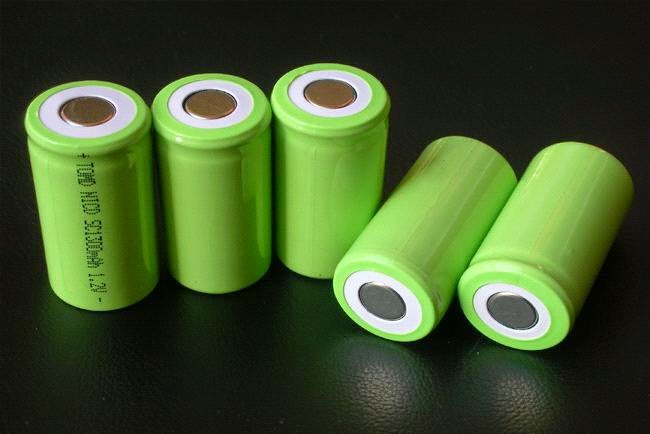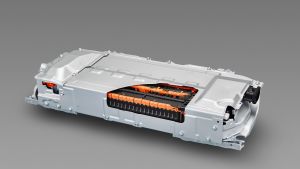With the growing popularity of electric vehicles (EVs), the demand for high-performance batteries has become essential. EV batteries play a crucial role in determining the range, efficiency, and overall performance of these vehicles. In this article, we will explore the various aspects of EV batteries and highlight the top brands in the market.
Whether you are an investor or simply interested in learning more about EV technology, this article will provide valuable insights into choosing the best EV battery.
Introduction
Electric vehicles have become increasingly popular in the automotive industry over the past decade. With concerns about climate change and rising fuel costs, consumers are opting for eco-friendly transportation options. Electric vehicles offer benefits such as reduced carbon emissions, lower operating costs, and a smoother driving experience.
A crucial component of electric vehicle performance is the high-performance battery. The battery determines the range and charging speed of an EV, making it essential to invest in a quality battery for maximum efficiency and range.
Understanding EV Batteries
In electric vehicles (EVs), batteries are crucial energy storage units that power the vehicle’s electric motor. They allow EVs to function optimally and achieve desirable ranges. The most popular choice for EV batteries is lithium-ion (Li-ion) due to its high energy density, longer lifespan, and fast-charging capabilities.
Nickel-metal hydride (NiMH) batteries, commonly used in early hybrid vehicles, have been largely replaced by Li-ion batteries in modern EVs. Solid-state batteries offer higher energy density, faster charging times, increased safety, and potentially longer lifespans, but they are still under development.
Ongoing research aims to improve battery technology for more efficient and sustainable options in the future.
Factors to Consider when Choosing an EV Battery
When choosing an EV battery, several key factors should be considered. Firstly, the cost-effectiveness and long-term savings associated with different options. While some batteries may have a higher upfront cost, they can offer better performance and durability over time, resulting in significant savings on maintenance and replacement.
Secondly, the charging time and availability of charging infrastructure are crucial for convenience. Different EV batteries have varying charging speeds, so it’s important to consider your area’s charging infrastructure for seamless travel experiences. Lastly, sustainability is essential.
Opt for batteries with lower environmental footprints and explore end-of-life recycling options to minimize waste and maximize resource efficiency. By considering these factors, you can choose an EV battery that meets your needs in terms of cost-effectiveness, convenience, and sustainability.
| Factors | Considerations |
|---|---|
| Cost-effectiveness and long-term savings | Compare upfront cost to potential savings over time |
| Charging time and infrastructure availability | Evaluate charging speed and availability of charging stations |
| Environmental impact and sustainability | Choose batteries with lower environmental footprints |
Choose wisely to enhance your driving experience while contributing to a cleaner future.
Introducing Top EV Battery Brands
When it comes to electric vehicles (EVs), choosing the right battery is crucial. In this section, we’ll highlight two leading EV battery brands that have made a significant impact in the industry.
CATL, or Contemporary Amperex Technology Co., Limited, is a global leader in EV battery manufacturing. With an impressive 34% market share, CATL is renowned for its superior performance and compatibility with various electric vehicle models. Their batteries offer high energy density, longer ranges, and fast-charging capabilities.
LG Energy Solution, a subsidiary of LG Chem, holds a substantial market share of 14% in the EV battery industry. Known for their reliability and high performance, LG Energy Solution offers a wide range of battery options suitable for different electric vehicle models.
In summary, CATL and LG Energy Solution are top players in the EV battery market due to their significant market shares and commitment to delivering exceptional performance and reliability.
As the demand for electric vehicles continues to grow, these brands are shaping the future of sustainable transportation through their efficient and dependable battery solutions.
Other Prominent EV Battery Brands
BYD, a Chinese company, holds a 12% market share in the electric vehicle (EV) battery industry. Known for its innovative battery technology, BYD has had a significant impact on the EV market as a whole. Their batteries offer competitive performance and reliability.
Panasonic, a Japanese electronics giant with a 10% market share, has been a leader in EV battery technology for years. With partnerships with major automakers like Tesla, Panasonic has contributed greatly to advancing EV batteries. They provide reliable and high-performance batteries suitable for various EV applications.
Both BYD and Panasonic are renowned brands when it comes to choosing high-quality batteries for electric vehicles. Their market shares reflect their influence and success in the industry. These brands consistently push boundaries to deliver cutting-edge technology that meets the demands of EV manufacturers and consumers alike.
Technological Advancements in EV Batteries
Researchers worldwide are working on improving the energy density of EV batteries to increase range and efficiency. New materials and manufacturing processes are being explored to enhance storage capacity while reducing weight and cost.
Breakthrough technologies like solid-state batteries, silicon anodes, lithium-sulfur batteries, and advanced cooling systems show promise in developing longer-lasting batteries for electric vehicles.
These advancements have the potential to revolutionize the EV industry by offering higher energy density, improved safety, increased range, and extended battery life.
The Future of EV Batteries
The future of electric vehicle (EV) batteries is bright, with exciting advancements on the horizon. One notable development is the emergence of solid-state batteries, which offer higher energy densities and faster charging times. These breakthroughs will revolutionize the EV market and accelerate the transition to sustainable transportation.
Solid-state batteries eliminate safety concerns and have the potential to store more energy in a smaller space. This means longer driving ranges for EVs and shorter charging times, addressing two key concerns for consumers. Additionally, improvements in infrastructure and cost reduction will make EVs more accessible to a wider range of people.
As charging networks expand and prices decrease, electric vehicles will become increasingly practical for everyday use. The future of transportation lies in electric mobility, and these advancements in battery technology will drive us closer to a sustainable future.
Investing in the EV Battery Industry
The EV battery industry offers exciting investment opportunities for those looking to capitalize on the rising demand for electric vehicles (EVs). Companies leading battery advancements, such as CATL and LG Energy Solution, are well-positioned to benefit from the increasing adoption of EVs worldwide.
With governments prioritizing sustainability and implementing policies favoring electric transportation, investing in this industry holds significant growth potential. As the demand for high-performance batteries surges, companies involved in their production can expect substantial returns on investment.
Diversifying investment strategies to include raw materials and energy storage solutions within the EV battery ecosystem can further enhance portfolio diversity. Overall, investing in the EV battery industry enables investors to tap into a rapidly growing market driven by global electrification trends.
[lyte id=’7SPzDkybke0′]





